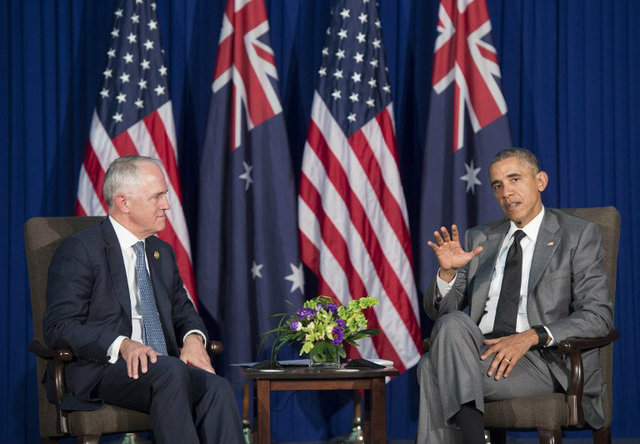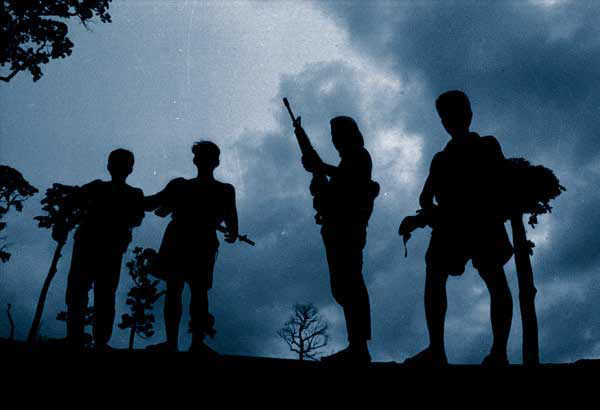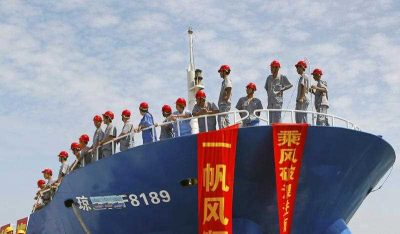
Buluan, Maguindanao – Despite the uncertainty of Bangsamoro Basic Law (BBL) being passed by congress, Maguindanao political leaders gathered in a peace dialogue on November 10, 2015 at BBGM Restaurant, Buluan, Maguindanao where they issued a manifesto calling for the passage of a BBL that faithfully complies with the Comprehensive Agreement on the Bangsamoro (CAB) and not the one that will reduce the powers and authority of the Autonomous Region in Muslim Mindanao (ARMM).
“We are all living witnesses to how our people – men, women, children and the elderly – lost lives and properties, experienced disruption of economic activities and suffered indignity in the evacuation centers brought about by the conflict in Mindanao”, the leaders said in their manifesto.
“We strongly believe that the BBL submitted by the Office of the President (OP) to the Lower House and the Senate on September 10 last year, can address various forms of injustices committed against the Bangsamoro and, thus, can bring forth dignified peace, meaningful development, unity and reconciliation in the entire country,” they said in their statement.
The peace dialogue was participated by local government units from the provincial level to the municipal level.
Prof. Miriam Coronel-Ferrer, Chair of the Government of the Philippines (GPH) Peace Panel, representatives from the Bangsamoro Transition Commission (BTC), and Moro Islamic Liberation Front (MILF) were invited to the said dialogue.
The Asia Foundataion (TAF) Senior Program Officer Noraida Chio challenged the local government units of Maguindanao to be part of the solution and urged them to work together and unite to make the successful peace process a legacy and gift to the future generation of Bangsamoro.
"Wala pong isang Bangsamoro ang hindi nananaginip na sana anytime of the day, makakalakad tayo sa daan ng walang takot. Na sana makita natin ng lahat ng bata ay makapag-aral. Na sana lahat ng mga kabatang Bangsamoro ay makakapagtapos ng pag-aaral. Na sana lahat tayo sa Bangsamoro ay uunlad at walang maiiwan," she said.
Ferrer explained that all efforts had been made and are still being done to successfully pursue the GPH-MILF peace process. She also urged the local government unit leaders in Maguindanao to show everyone what the Bangsamoro can do.
"Ayaw nating magkamali kase kelangan nating ipakita sa buong mundo na ang Bangsamoro ay may kakayahan basta mabigyan ng sapat na political autonomy at sapat na resources. Na kaya nyang paunlarin ang Bangsamoro, kaya nyang paunlarin ang buong Pilipinas dahil ang kaunlaran ng Bangsamoro ay kaunlaran ng buong Pilipinas. Ang tagumpay ng Bangsamoro ay tagumpay ng bawat Pilipino," Ferrer said.
"BBL or No BBL or Bad BBL, we need to be strong. We need to consolidate the Bangsamoro people. We should rely on our strength and unity of our people. We need to build on the political capacity of our people. We, as a Bangsamoro, we need to strengthen our movement towards self-determination," said BTC Chair Mohagher Iqbal in a statement read on his behalf by BTC Legal Consultant Atty. Sha Elijah Dumama Alba.
TAF Country Representative Dr. Steven Rood expressed continued support and commitment as a member of the Third Party Monitoring Team (TPMT) to the GPH-MILF peace process. "You are not alone in this process. You have friends in the international community. And we are all working together to want this peace process to happen", he said.

Sammy Al-Mansour, Chief of Staff of the Bangsamoro Islamic Armed Forces (BIAF) of the MILF, and Secretary General of United Bangsamoro Justice Party (UBJP) said that the negotiation is already concluded with the signing of the CAB by the GPH and MILF last June 27, 2014.
“The bargaining situation is no longer there. Our situation now is magtulungan kung paano maimplement o kung paano makikita na yung peace process na tinatahak natin ngayon ay maging successful. What remains in the peace process now is the compliance of both sides to the signed agreement and all those agreements already incorporated into the CAB," he said.
“The passage of the BBL is the responsibility of the government at ang pagpasa ng BBL ang political package na gagawin natin at kinakailangan natin. This BBL is only an implementing mechanism of the two signed agreement, the FAB and the CAB. On our side, once maipasa at maratify ang BBL, pupunta kami sa decommissioning. Once it will be passed and ratified, we will comply with that agreement,” Al Mansour added.
The International Monitoring Team (IMT)-Team 10, Nonviolent Peaceforce (NP), Swiss Foundation for Mine Action (FSD) and other GPH-MILF Peace Process Mechanisms and International Non-government Organizations were also present in the activity and gave their respective messages.
IMT-10 Head of Mission Major General Dato Sheikh Mokhsin Bin Sheikh Hassan said, “We now stand at a crossroad and uncertainty. However, the path of peace ahead remains clear for us if we pursue three goals: Firstly, a common vision of our future society anchored on peace, Secondly, the core of shared values that animate our desires and preferences, grounds for peace which is acceptable to all religions, people, families and communities, and Thirdly, the power for united venture that’s brings people empowered action for attainment of a peace vision guided by the values we cherish.”
“Peace is a revolutionary process that transforms conflict from violent to nonviolent forms. The finishing line of a peace process is reconciliation, the point at which we are reconciled with one another and the past. The wealth of any country is found primarily in its inhabitants. The country’s future depends on them, individually and collectively, as does its capacity to work for peace. A commitment to peace is possible only in a unified society. Unity, on the other hand is not the same as uniformity. Social cohesion requires unstinting respect for the dignity of each person and the responsible participation of all in contributing the best of their talents and abilities. The energy needed to build and consolidate peace also demands that we constantly return to the wellsprings of our humanity,” he added.
He assured that the IMT will continue to work hand in hand with all the stakeholders and all involved in ensuring the safe and smooth execution of the peace process which will bring the sustainable peace within reach and the transformation of Bangsamoro and Mindanao dreams to reality.
FSD Program Manager Anthony Thomas Fish said in his message that, “Since the start of the peace process, they have been engaging both parties to renounce the use of landmines and to do something about the mines and UXO problem, and thankful that the both parties are sticking to these commitments.
“Whilst we, like everyone else, have been waiting for the Bangsamoro Basic Law to be passed, we’ve been implementing one of the key components of the Peace Agreement. That is: the clearance of landmines and UXO; as was agreed in the Comprehensive Agreement on the Bangsamoro – Annex on Normalisation,” Thomas said.
“Some aspects of our programme will be difficult to achieve without it. In the future, we plan to train up a local capacity in the Bangsamoro; one that will have the skills and tools necessary to clear the UXO that’s still out there; waiting to kill someone; or stopping them from farming their land; unless we do something about it.
And it’s worth bearing in mind that today’s UXO could become tomorrow’s IED, if something’s not done about it beforehand. We aim to do something about it but, until the BBL is passed, we can’t move on to that crucial stage,” he stressed.
Nonviolent Peaceforce (NP) International Civilian Peacekeeper Bridgitt McMullen said that the NP will continue to be here in a supportive role to promote civilian protection and respect for human rights and international humanitarian law, with full recognition of the privilege that it is to serve the peace process in this way.
“In our day to day work we are energized and inspired by the tireless, brave and collective efforts of community members, educators, local civil society, officials and all stakeholders to build and sustain peace in spaces big and small, in formal and informal ways- all of which are powerful expressions of hope and meaningful contributions to peace. Even in times when situations have become violent, when civilians have experienced very difficult circumstances, you have instances like a case in Maguindanao where the teachers of an elementary school came every day to their school in the midst of great insecurity and risk to run classes even though most of the students had been displaced. If even one student came, a zone of peace and normalcy at the school would be there waiting. This is one of many such cases of community resilience and peacebuilding taking place on the ground,” McMullen said.
MWDECC Project Officer Jehan A. Usop said in an interview that the dialogue was organized by four local organizations spearheaded by MWDECC together with Mindanao Action for Peace and Development Initiatives, Inc. (MAPAD), Kadtabanga Foundation for Peace and Development Advocates, Inc. (KFPAI) and Bangsamoro Center for Justpeace in the Philippines, Inc. (BCJP) in partnership with Australian Government, TAF and Maguindanao Provincial Government.
MAPAD Executive Director Samsodin C. Amella said in an interview that the dialogue was organized to consult and gather the support of the Maguindanao political leaders to the passage of the Bangsamoro Basic Law.
“Dahil nakikita natin na mahina talaga ang usad ng Bangsamoro Basic Law kaya naisipan natin na iconvene ang political leaders ng Maguindanao para magpalabas ng kanilang statement in support to the BBL,” Amella said.
http://www.luwaran.com/index.php/new/item/679-maguindanao-political-leaders-call-for-passage-of-cab-compliant-bbl-for-national-unity-and-reconciliation







